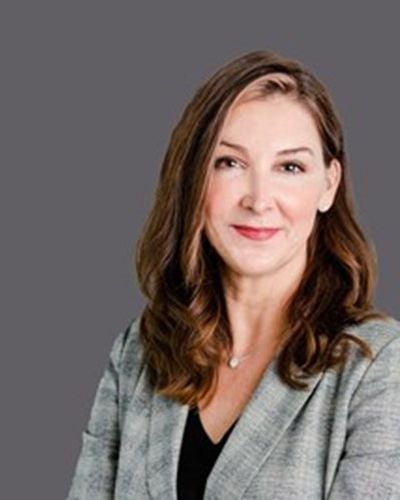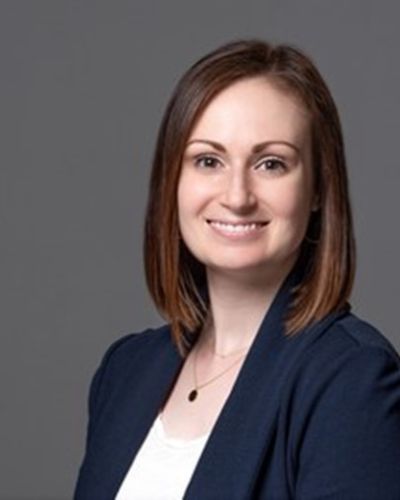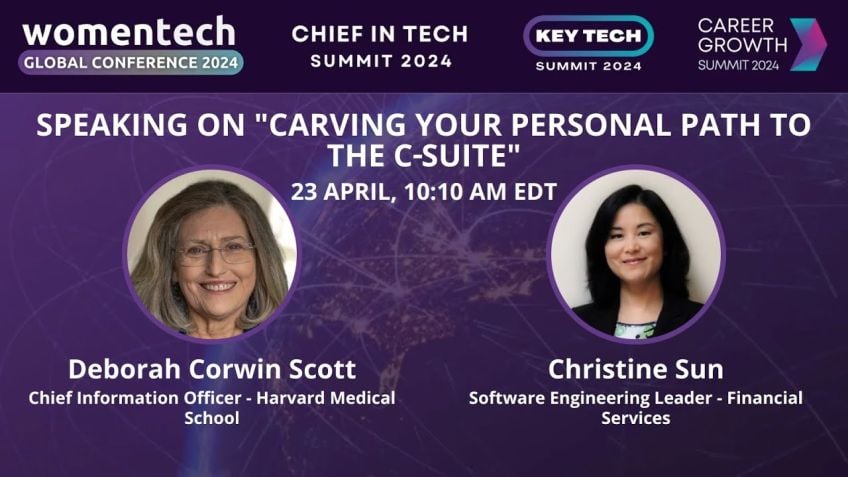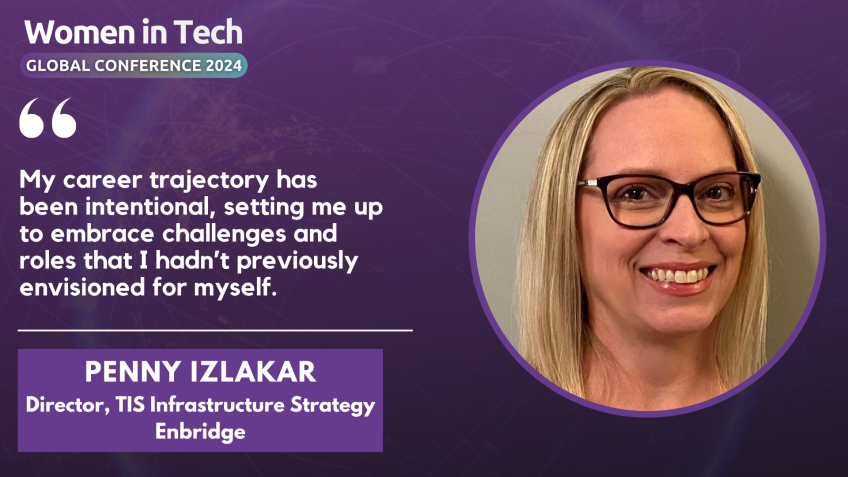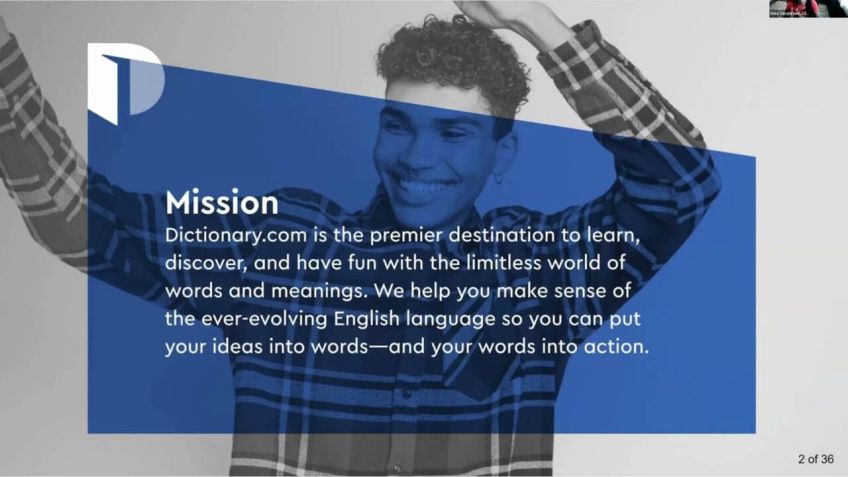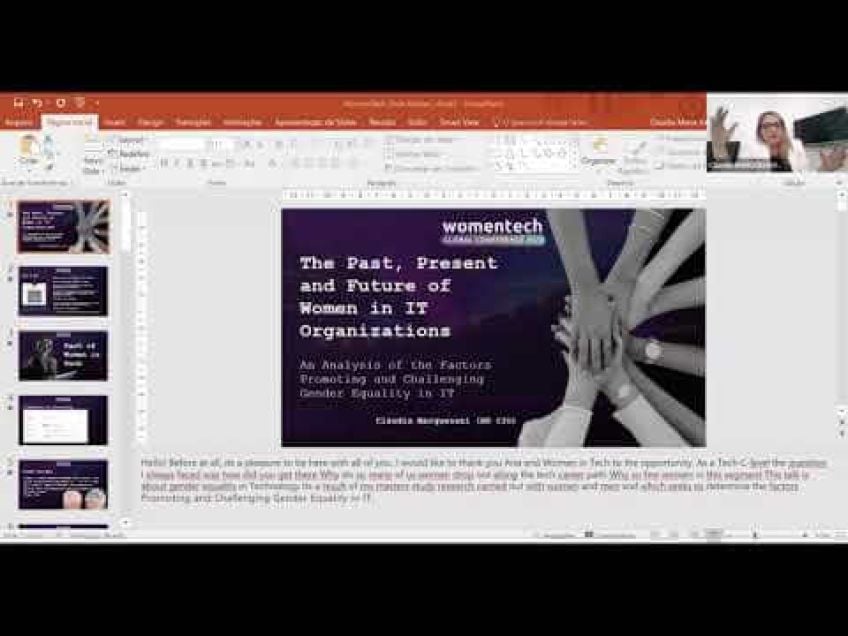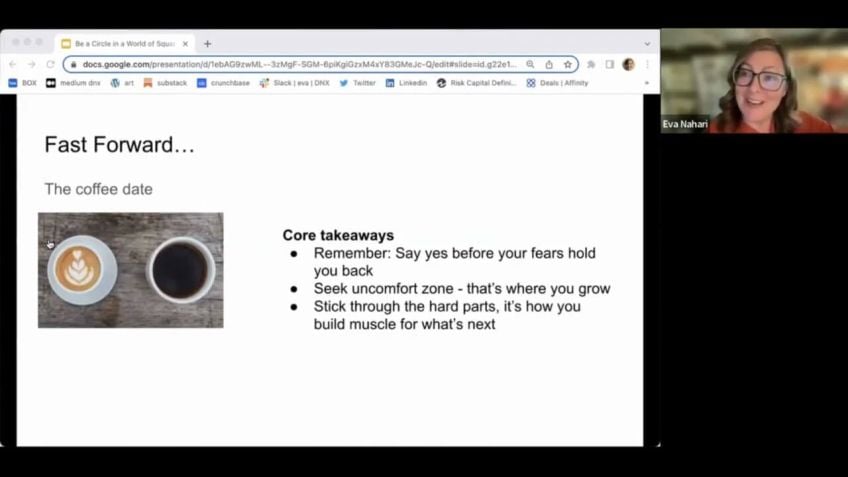Customer Success and Product: Two Emerging Paths to Joining the C-Suite
Alli Tiscornia
Alli Tiscornia, Chief Customer OfficerAbby Hammer
Abby Hammer, Chief Product OfficerPath to the C-suite: Perspectives and Experiences Advancing as Women in Tech
Hello, everyone. My name is Abby Hammer, the chief product officer at Churn Zero, joined by Ali Tascor, our incredible chief customer officer. We're thrilled to share our journey to the C-suite, particularly as women in the tech industry. We hope our experiences and insights will be insightful and beneficial, shedding light on relatively unconventional pathways to the C-suite.
Ali's Path to the C-suite
Could you tell us a bit about your journey to the C-suite and the key moments integral to forging your career path?
Ali responded, For me, I've spent two decades in tech, primarily in the post-sale world. I've held almost every leadership position across the customer journey—from implementation and customer success to support, professional services, and even managing a solution architecture team. Key to my journey was a varied role, focusing on the entire customer lifecycle instead of mastering a specific domain. This approach broadened my perspective on the customer experience across different touchpoints and played a crucial role in my upward journey. I also ran a biz ops team in a previous organization to understand the operations of different post-sale teams better, which undoubtedly accelerated my journey.
How do you manage building confidence and resilience in your career, especially when acquiring new domain expertise?
Ali emphasized, Accept early on that change is part of growth. Embrace change and the chance of failure because growth often comes from change. And remember, you'll always learn more from failure than success. Embrace this philosophy.
Abby's Path to the C-suite
Abby shared her career journey, moving from customer work to a keen interest in the product field. She expressed her enjoyment for acquiring new knowledge and advice on documenting accomplishments to combat impostor syndrome. She stressed the importance of learning from failure, embracing change, and even 'faking it till you make it.'
Did you ever feel impostor syndrome transitioning into product roles?
Abby confirmed feeling impostor syndrome, especially transitioning from non-technical roles to technical ones. Documenting accomplishments and acting confident even when unsure were crucial to her overcoming these feelings. She emphasized the need to be resilient and continue to forge ahead despite uncertainty or fear.
Lessons for 25-year-old Self
Abby and Ali shared lessons for their younger selves, including the importance of asking for help, embracing change, maintaining a grander career perspective, being purposeful with mentorship requests, and incorporating self-care. Abby also highlighted the significance of pattern recognition in career advancement and the power of having male mentors.
Why Customer Success and Product Roles are Ideal Pathways to the C-suite
In her closing, Abby pointed out how a product role intersects all parts of the organization. As such, there is much to learn about the entire business, thereby making it an excellent pathway to the C-suite. Ali echoed these sentiments from a customer experience standpoint, noting that the post-sale journey offers valuable exposure to the entirety of the customer's experience.
Video Transcription
All right. I think we are live. So, hello, everyone. Uh My name is Abby Hammer and I am the chief product officer at Churn Zero. And this is Ali Tascor, our fabulous chief customer officer.And we're both very excited to join you today and talk a little bit about our paths to the C Suite. Um and our perspectives and experiences on advancing to the C Suite as a woman, particularly a woman in tech. Um you know, all customer success and product roles aren't the most conventional pathways to the C Suite lie. And I both feel that they can be very ideal pathways. So we're hoping a few of the experiences we have to share today will be insightful and helpful to you all. So we only have 20 minutes today. So lie and I are gonna ask a few minutes, a few questions of one another to structure our conversation, but we invite you to drop any questions you may have for us in the chat as we go. And if we have a few minutes at the end, we'll, we'll, we'll, uh we'll, we'll see if we can answer any of them. But Allie Thanks for being here today, everybody. I love any opportunity to talk with Ally.
So, always excited to share experiences with her, but I'd love you to kick us off today and talk a bit to us about your path to the C suite, what your career path has been and in particular, share with us um things you think were particularly integral and important to how you forged your career path.
Sure. Thank you. Thanks very much, Abby. I'm super excited to be here, always uh enjoy having a conversation with you. Um So for me, uh basically, I spent 20 years of my career in technology in the postal world. Um So I have held pretty much every leadership position in every part of the customer journey from implementation to customer success, to support to professional services and even managing a solution architecture team. And so when I think about what it is, that kind of led me on my path to the Swiss C suite. It really is. Um I think about the variation in roles that I've had. So instead of focusing on that kind of vertical ascent where you become an expert in a domain, I wanted to see the actual entire life cycle of being a customer and having roles in each of those different positions. I think really helped me to expand my horizons on what it is like to be a customer and what it is like to experience those different touch points and milestones in the customer journey. And I think that was really, really important. Um in addition to that, I even um I even ran a biz ops team in uh a postal organization because I wanted to know what it was like to run numbers for different um postal teams. I wanted to know what it was like to actually do capacity planning.
And so I think that that was really important and I think that actually that accelerated my journey into the C suite as opposed to, like I said, being kind of that domain expert
100% I think people are more likely to naturally see you as a leader if they feel you've walked a mile in their shoes in a certain capacity, uh you know, to, to some degree for some length of time, it just gives you a lot of authority out of the gate. Um You know, someone who's also has a background in customer work, it can be challenging, you know, it's dealing with people constantly, you know, which are has is the high highs and the low lows sometimes. So, you know, it's a little follow up to that. I'm curious how do you, when you think about building confidence and being resilient in your career, especially as you move around and have to keep getting new domain expertise starting back at the beginning and building up, you know, expertise, how do you, how do you think about that in your career path.
I think the biggest thing to do for or the biggest advice that I have, the best thing that I did in my career was to accept early on that change is part of growth. And instead of looking at change as something to be afraid of, I think you've got to um embrace change except that um, something is always gonna be a little bit new and a little bit different. Um And to not be resistant to change, that actually change leads to growth for a lot of people. Um And I think once you embrace change, I think that just naturally builds your, builds your resist resilience. And I think the other thing that if you're going to embrace change, you're also gonna have to embrace the potential and possibility that you might fail. And that I always say to people having been a project manager in a previous life as well that you will always learn more from something that you fail at than you ever will learn from being successful. So embrace change, embrace change and don't be afraid to fail. And I know that sounds kind of um cliche, but it really is very true.
It's, you know, it's the ted Lasso philosophy is you gotta be, you gotta be a goldfish and let go of, you gotta
be a goldfish. I love it
from the failure, but don't let it dictate how you move into the next phase. So Absolutely. Absolutely. Um, well, I'll share a little bit about how, uh, my career it, so there's a lot of similarities when I look at my career path to your values. Uh 11 being that, um, I, I'm a person who embraces change. I'm always willing to learn a new thing. I, I, that, that really lights my brain up a little bit when we, uh, when I get to learn a new thing. Um And uh and also that I was willing to chase things that were interesting to me. So the first part of my career was in customer work. Um I did implementation work and then I did customer success management that was not called that at the time. Uh We hadn't figured out that that's what it should be called yet. And then I got interested in product. I was working at a SASS organization and I just had a lot of opinions as a lot of people who work in customer work do about the I was supporting and I really got interested in being, um you know, in an opportunity to influence where it went. And I was lucky enough that I was given a shot to do that, you know, to, to take a step backwards in my career in order to shift into a product role. Um But to really change my career trajectory with that move.
Um And the thing that propelled that shift for me was just being interested in something and being willing to be vocal about being interested in something, um, which has been a little bit of a Hallmark uh, for me as well, is just any opportunity that came forward to learn something different?
Have a deeper perspective on all sorts of different parts of the organization heavily through the product lens for myself. But, uh that really helps me move forward and continue to get more and more opportunities because I was seen as someone who's willing to dig in and understand what was going on. And then when we started turn zero, sort of the two ads in my career, really lovely coming together, you know, product success, it, customer success and product together. So on that one, I, I just got lucky, I gotta say, you know, but it, it happened to use the two abs of my career really in a really lovely way.
So I think that your career is so interesting and uh for anybody out there, one of the reasons I joined turn zero is because how, how lucky could you be to have a chief product officer who's actually been a chief customer officer as well? But what's interesting to me about that is that I don't think people would naturally think of moving from customer success into product even though I think you've made a really good case for it. But did you ever have the that moment where you felt a little bit of an imposter syndrome. Um, going into something that was so different than maybe where you started your career. And what did you do to kind of navigate through that?
Yeah, 100%. I mean, I could give a whole separate ted talk on why. I actually think customer success people make fantastic product people. Um, you know, the product team here at turn zero, almost every single member has some degree of background and customer success. I think there's a lot of things that translate over in a really lovely way. Um But yeah, I struggled a lot with imposter syndrome. Um shifting and especially shifting from a non technical role into a technical role. My degrees are in psychology and sociology. I don't have a computer science degree. Uh You know, when I first stepped into the space, I still remember an early on meeting, they were talking about an API and I was like, I don't even know what an API is like, why am I here? Like what's happening? So, you know, there was a little bit of, I, I want to echo some of what you said a lot of that was willing to just embrace the change and embrace feeling, feeling a little bit lacking in knowledge, but trusting myself to, to find that knowledge. So they've gone through many shifts. I think about whenever I experience feelings of imposter syndrome, I always think about what would I say to a friend if they said to me, like, I don't deserve what I'm getting. I don't deserve the opportunities that I've had. I've earned these things. Like, what would I say as their friend, I'd immediately tell them that their brain was lying to them and I'd start listing out their accomplishments. Like, of course, you deserve this. You've done this and you've helped with that and you've led this thing.
And so that's been something that I've had to learn for myself is that sometimes you have to, to be that friend to yourself. I do a lot of documenting of the things that I've done because I have a terrible memory. So I'll forget anyway. But writing those things down when I have this moment of, oh, I don't know why I'm here. I don't know. I've been given this shot. Maybe I'm not the right person for this, having that to revisit and having some evidence that I can that I can bring to the table and say, hm, yeah, you might be slightly in over your head if it's a truly new spot. But look at all the other times you were in over your head and you made it through and these are the reasons that you're being given these shots. So the the evidence has been, has been really helpful. Um And then this is terrible advice, but it is so true for me. There is something in faking it to making it like there, there truly is. There is, I, I agree. Yeah. If you act confident, I say all the time, I'm like, just do stuff scared, just do stuff scared.
If you pretend like you're not scared, even if you're scared inside there's, it, it sort of comes along and so if you build it, they will come sort of mentality, which can be, you're not gonna be great at that every single day. But it's a, it's a muscle that if you can exercise, it can be a super powerful muscle to bring into the situation.
And I think women have, um in particular, we struggle a little bit with that, uh faking it to make it as opposed to I, you rarely ever hear men worrying about faking it to make it right. I, I feel like they, they embrace that very well and, and do very well with that. So I have a question um around so love what you said about writing things down and writing your accomplishments down because I think that is incredibly impactful for anybody who's having kind of a crisis of confidence is to be able to talk about, like, look, I actually have done a lot of these different things.
What would you tell your 25 year old self um about where, where you are today? And is there anything that you would do differently or like something that you would really focus on? You? Would, you would want that 25 year old to know Yeah. Uh
So first moisturize. Um, yes, abs
and sunscreen,
moisturize and sunscreen are moisturizing. Um, but in all seriousness I think, I think the natural and beautiful thing, especially when you're in your twenties is that everything feels permanent, like you're propelled by this sense of like, you know, things are bad. Maybe they're always gonna be bad if they're good, they're always gonna be good. And if I could communicate this to my 25 year old self, it's, you know, all this too shall pass that sort of mentality. I don't mean it in a dismissive way. But the times that I was like, I'm never gonna achieve what I want to achieve or I'm, you know, I feel like I'm failing at everything I wanna do. Or even the times that I felt on top of the world, like you have to be prepared to ride the roller coaster because that's the nature, that's the nature of a productive career in a lot of ways. You can't always be on the top of every single mountain things can't always be going your way. So if you, if you can teach yourself to pace through that a little bit better, it means that your brain is a little quieter. That's always been a challenge for me is how do I quiet my brain to be able to see the things that are directly in front of me? And I think if I'd been able to learn a little bit more of that.
Like, you know, it, it's gonna be ok, you know, slow yourself down. I would have been more open to situations. I would have been able to see them for more of what they were and take in more of what was happening as opposed to being really trapped in some intense moments for myself. Um But I'd love that question. I want to know what your answer is to that as well. 25 year old ally, what are we, what are we telling her?
First of all, that would be a long time ago now. So there would be extra moisturizing and uh sunscreen involved in that. But what I would tell 25 year old Ali is this, um don't be afraid to ask for help. Um I think sometimes when you're young and you're starting out, you don't want, you know, again, it's this fake it until you make it. And so you don't want people to know potentially that you don't know. And so you're afraid to ask for help. And I think one of the best things I've learned in my career is that not everybody, not, not, not everybody has the answers, not everybody in leadership has the answers. And it's OK to ask for help when you don't know something. It is not a flaw, it, it's actually a show of strength. And I think the other thing I would tell 25 year old self is if you're going to ask for a mentor and you're going to ask for somebody to mentor you be very specific about you what you want from that mentor, not asking them just to open doors for you. But how can that mentor help improve the things that you might be struggling on or struggling with and to be very aware and self aware of what you think those struggles are and then asking that mentor to share whether you are correct in your assessment of yourself, of where your weaknesses are.
I think one of the things that was really powerful to me with one of my mentors is, you know, something that I thought was a weakness was actually what they thought was a strength of mine. And so I thought that was kind of fascinating to get a different perspective.
I love the asking questions and I think it feeds into sometimes the imposter syndrome stuff like I'll be in scenarios where I'm like, why does everyone know something? I don't? And it's just because I haven't been through that scenario, but it takes confidence to say like, OK, hang on a second. Why do you know that? Why was your immediate answer to that X or Y or Z? Because otherwise, then you're never gonna be in possession of that. And so there's moments where not asking the question is blocking you from making that advancement because you've said this to me before in conversations is a lot of moving through your career path is pattern recognition, like seeing a thing and now being able to anticipate and react to it in a different way because it's the second, it's a third, it's the fourth time you've seen something.
But to your point, if you don't capitalize on asking questions and understanding situations earlier in your career, then then you're just gonna be behind the, behind the ball on, on the pattern recognition. Um You know, you and I share something interesting in common and that is, is that some of the most significant mentors that we've had in our career or our longest standing mentors happen to be men, you know. Yes, I, I've been working for our, our CEO for, you know, a really long time now and he, he's wonderful, but he's a dude, you know, so what's your perspective on mentorship for other women? I think sometimes we want to seek out a female leader, which there is real power in that. But what's your perspective on male mentors? Yeah. II I
think you should embrace, I, I think you should embrace anybody who is going to help you. And when you, you look at somebody that you really admire and you admire their leadership skills, you admire something in particular, you know, maybe for you, for their technical skills, I think you seek out the people that you wanna most be like. And I think it really is irrespective of what their gender is, it's really a matter of finding that person that you again want to replicate and, and figure out what you like about what they do really well as opposed to needing to just find a woman that can help men. Are you now, if you find somebody, you know, if you find a woman leader that you really respect and admire and you want to be like that person, I think that's fantastic and that's wonderful. But I also don't think you should limit yourself to a specific gender because I do think that I think that people d bring different perspectives, all kinds of different perspectives. And I think some of my male mentors that I really adore and like, there's also been times where I've noticed them in situations where I actually didn't like something that they did and thought about as a woman, I would handle the situation differently.
And I thought that was just, is equally powerful. And we've had that conversation too where I've said, you know, as a woman, I would have done this and they go, oh, wow. I, I wouldn't have even thought of it that way, right. So I think it's actually very powerful to have, you know, multiple
genders as a mix, a mix. Absolutely. Absolutely. Um So I know we only have three minutes left. So maybe we'll round it off by saying, you know, Ali, from your perspective as a chief customer officer, why do you like customer success as a pathway to the C suite.
I'm going to broaden it a little bit on you, Abby, I'm gonna say I like, I like customer experience. So I like the whole post sale journey as a really good pathway to the C suite because again, I think you're seeing the breadth of the customer experience and the and seeing all of those different touch points for the customer. I think that's really important. I think just um focusing on customer success could uh actually potentially be a little bit limiting. But I would ask you, what do you think is um important about um being in product that can lead you to that C suite?
Yeah. You know, I'm gonna give a little bit of a similar answer and that what I really like about product is it sits in the middle of the organization in a lot of ways. Like if you just built a product that's sellable, but no one renews on, that's a failure. If you build a product that, you know, customers may love, but you can't like attract people in the door. You know, that's a failure that it really sits as an, as a cog in between all these parts of the machine. So it does give you this perspective about how things come together. And if you treat that, that position as a central star seriously, and you invest in your relationships with your leader of customer experience or customer success with your leader of sales, with your leader of marketing, all these other things, you actually get this great introduction to the entire organization through the lens of building a solution that's gonna power.
Um That's gonna power that, that organization. Um You know, so I think it's, I think it's a great way to learn about all aspects of the business. And in general, I think product is a great focus for women. You know, that takes a lot of organization, a lot of broader thinking, a lot of empathy about what customers go through. And that's not to say that men don't, aren't
empathetic because they are. But
I do think there's a lot particularly about product management and product marketing that can be particularly well suited for, for women. So we need more, we need more of us in the space. We do.
I completely agree. I completely agree
and I think we're basically at time a new full time. Uh We always, we always do, but uh for everyone who was able to join us. Thank you. Hopefully, you found a couple of useful tidbits and today lie and I are both on linkedin. Please come find us. If you're, if you're interested in chatting more about either leadership and customer success or leadership and product.
Thanks everyone. Thanks Abby. This was
great ally. I think, I think we can just leave. I'm not sure

